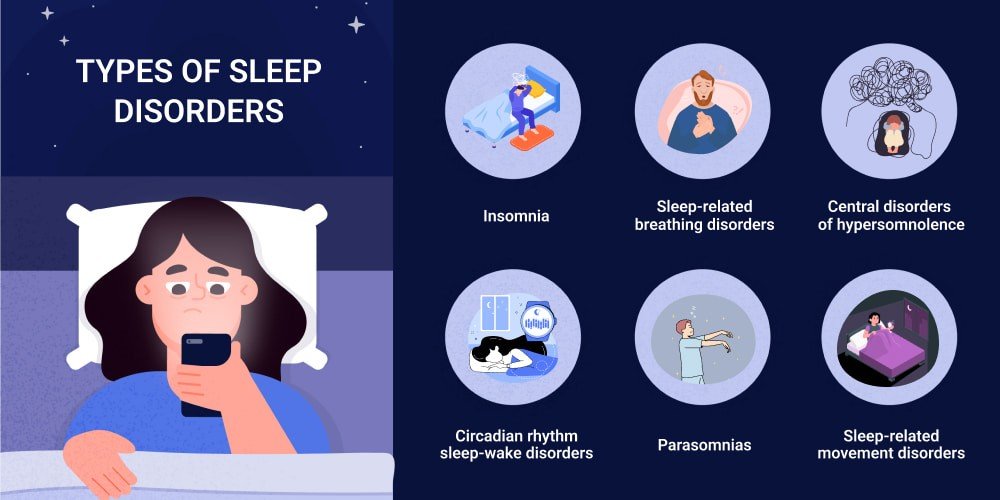Narcolepsy is a neurological disorder characterized by excessive daytime sleepiness and a tendency to suddenly fall asleep at inappropriate times. While often misunderstood or mischaracterized in popular culture, narcolepsy is a serious condition that can significantly impact an individual’s daily life and overall well-being. In this comprehensive guide, we will delve into the causes, symptoms, diagnosis, and treatment options for narcolepsy, as well as explore the practical strategies and emerging research aimed at improving the management of this condition. Understanding narcolepsy is crucial for both individuals living with the disorder and those seeking to support and assist them effectively.
1. Introduction to Narcolepsy
Welcome to the world of narcolepsy, where falling asleep unexpectedly is not just for toddlers and grandpas in rocking chairs. Narcolepsy is a chronic neurological disorder that messes with your brain’s ability to regulate sleep-wake cycles, leading to sudden bouts of sleepiness at inconvenient times. You know, like during that important meeting you’ve been preparing all week for. Sounds like a blast, right?
2. Understanding the Causes of Narcolepsy
Genetic Factors
Blame it on your genes! Studies suggest that narcolepsy may have a genetic component, with certain gene variations increasing the risk of developing this sleep disorder. So, if Aunt Mildred falls asleep mid-conversation at every family gathering, you might want to stay alert.
Neurological Factors
It’s not just about genetics; narcolepsy also involves some brain-bending neurological factors. Issues with certain neurotransmitters, particularly hypocretin (orexin), are suspected culprits in causing narcolepsy. Basically, your brain’s messaging system for staying awake and alert decides to take an unscheduled nap.
3. Recognizing the Symptoms of Narcolepsy
Excessive Daytime Sleepiness
Dozing off during movies, struggling to stay awake while reading a book, or feeling like a zombie without your morning coffee? Welcome to the world of excessive daytime sleepiness, the hallmark symptom of narcolepsy that makes staying awake feel like a Herculean feat.
Cataplexy
Imagine laughing at a joke and suddenly your legs give out, making you collapse like a sack of potatoes. That’s cataplexy for you – a sudden loss of muscle tone triggered by strong emotions like laughter, excitement, or anger. It’s like your body decided it had enough and needed a quick siesta.
Sleep Paralysis
Ever woken up from a nap but felt completely paralyzed, unable to move or speak? You might have experienced sleep paralysis, a spooky sensation that can accompany narcolepsy and make you question whether you’ve been possessed by a sleepy demon.
Hypnagogic Hallucinations
Dreaming while you’re half-awake can lead to some pretty wild experiences. Hypnagogic hallucinations are vivid, dream-like sensations that occur when you’re falling asleep or waking up, adding a touch of surrealism to your already quirky sleep patterns.
Disrupted Nighttime Sleep
Just when you thought you had enough sleep drama during the day, narcolepsy can also disrupt your nighttime snooze. Expect frequent awakenings, vivid dreams, and a general sense of unrest that turns your eight hours of shut-eye into a restless rollercoaster ride.
4. Diagnosis and Evaluation of Narcolepsy
Medical History and Physical Examination
Forget small talk; your doctor will dive deep into your sleep habits, medical history, and symptoms to unravel the mystery of your excessive sleepiness. Expect questions about your sleep patterns, lifestyle, and possibly even your dreams – it’s like therapy, but with more yawns.
Sleep Studies (Polysomnography)
Welcome to the slumber party of a lifetime – except you’re the only guest wearing a bunch of wires. Polysomnography involves spending a night in a sleep lab while technicians monitor your brain waves, heart rate, breathing, and movements to capture your nocturnal escapades in all their polysomnographic glory.
Multiple Sleep Latency Test (MSLT)
If the sleep study wasn’t enough excitement for you, get ready for the MSLT – the nap Olympics for narcoleptics. This daytime test measures how quickly you fall asleep during scheduled naps to assess your level of daytime sleepiness. It’s like a power nap competition, but with medical supervision.
And there you have it – a crash course in narcolepsy, from its snooze-worthy causes and quirky symptoms to the diagnostic adventures that await those in the land of perpetual sleepiness. Stay woke, folks!
5. Available Treatments for Narcolepsy
Stimulant Medications
When coffee isn’t cutting it, stimulant medications can help keep you awake and alert throughout the day. Just remember, they’re not a substitute for a good night’s sleep!
Wake-Promoting Medications
Need a little extra help staying awake? Wake-promoting medications can give you that boost you need to tackle the day without any unexpected naps.
Antidepressants
Not just for mood-boosting, certain antidepressants can also help manage symptoms of narcolepsy, like cataplexy and sleep paralysis.
Scheduled Naps
Yes, you read that right. Doctors may actually prescribe scheduled naps to help manage daytime sleepiness. Nap time just got a medical upgrade!
6. Lifestyle Management Strategies for Narcolepsy
Establishing a Regular Sleep Routine
Consistency is key! Keeping a regular sleep schedule can help regulate your body clock and improve overall sleep quality.
Avoiding Triggers for Excessive Sleepiness
Identifying and steering clear of triggers like heavy meals or boring meetings can help prevent sudden bouts of sleepiness.
Nutritional Considerations
Eating well isn’t just good for overall health—it can also impact your narcolepsy symptoms. Fuel your body with balanced meals to keep energy levels stable.
Exercise and Physical Activity
Get moving! Regular exercise can not only boost your energy levels but also improve the quality of your sleep. Time to lace up those sneakers!
7. Impact of Narcolepsy on Daily Life
Social and Emotional Challenges
Navigating social situations and managing emotions can be tricky with narcolepsy. Remember, it’s okay to ask for support when you need it.
Work and School Considerations
Balancing work or school responsibilities with narcolepsy can be challenging. Open communication with your peers and employers can make a big difference.
Driving and Safety Concerns
Safety first! If you have narcolepsy, it’s important to take precautions while driving, such as avoiding long trips when you’re feeling drowsy.
8. Current Research and Future Directions in Narcolepsy Treatment
Advancements in Medications
Scientists are always on the lookout for new and improved medications to better manage narcolepsy symptoms. Stay tuned for the next big breakthrough!
Gene Therapy and Novel Approaches
Gene therapy isn’t just for sci-fi movies. Researchers are exploring innovative approaches, like gene therapy, to develop more targeted narcolepsy treatments.
Patient Support and Advocacy Efforts
You’re not alone! Joining support groups and advocating for narcolepsy awareness can help create a more supportive community for those affected by the condition. In conclusion, narcolepsy is a complex disorder that requires a multifaceted approach to management. By gaining insight into the causes, symptoms, and treatments discussed in this article, individuals with narcolepsy and their support networks can work together to navigate the challenges posed by this condition. With ongoing research and advancements in treatment, there is hope for improved outcomes and quality of life for those affected by narcolepsy. Stay informed, seek support, and continue the journey towards better understanding and managing narcolepsy for a brighter future ahead.
















Leave a Reply